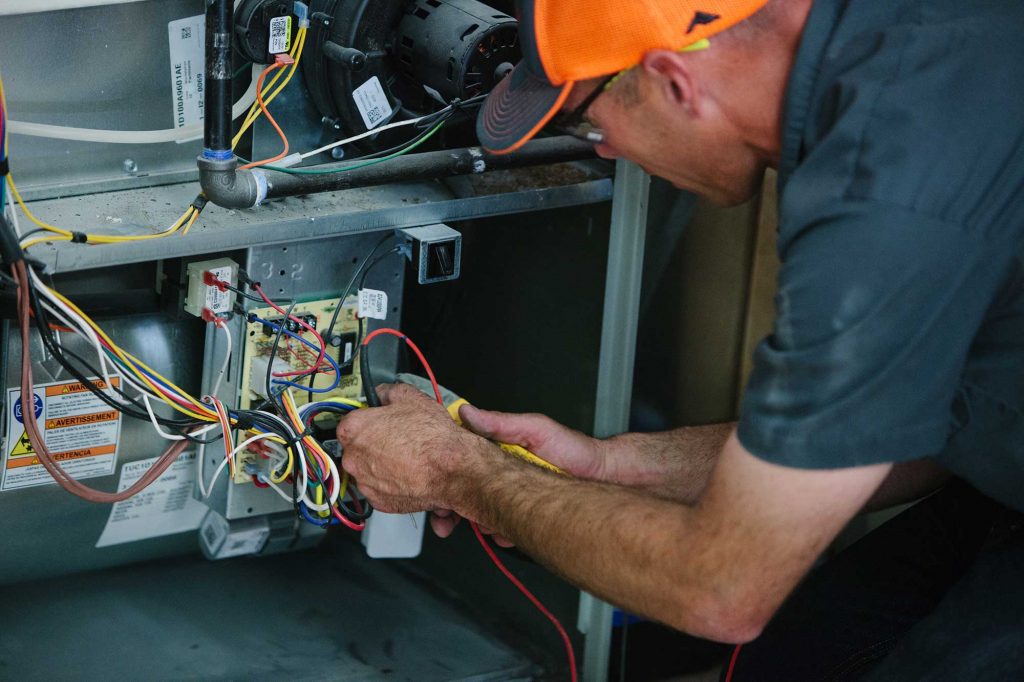HVAC Warranties Explained

Have you recently purchased a new HVAC system for your Southern Utah Home? Do you have questions about the HVAC warranty? Let’s go over the importance of HVAC warranties, which can help cover repair and replacement costs.
In HVAC, there are three types of warranties that are used to protect your HVAC investment: manufacturer, labor, and homeowners warranties.
Manufacturer HVAC Warranties
A manufacturer warranty on HVAC equipment is a written agreement to the purchaser that the equipment will be repaired or replaced within a certain period. In other words, it’s a contract between you and the brand of your HVAC system and is put in place as an added level piece of mind and assurance that the equipment will perform without defects during that time. A typical manufacturer warranty will often cover the parts that might fail due to manufacturer defect, like the compressor in an air conditioner or the heat exchanger in a furnace. If a defect causes the system to fail, the manufacturer will replace the part or the entire unit if it’s protected under warranty. However, a manufacturer warranty will not cover the cost of labor, maintenance items, changes done by the homeowner, or other circumstances like natural disasters. It’s important to check the wording of all warranties to understand the terms and conditions and their duration. Some warranties can last as little as five years, but most manufacturers have extended warranties that cover 10 years or more.
Labor HVAC Warranties
Another standard warranty that exists in HVAC is a labor or workmanship warranty. These come from your HVAC dealer or installer and are guaranteed to the purchaser that the work done is done correctly. If a mechanical failure occurs due to the installation or repair process, the contractor will remedy the issue at no charge. At EMCO heating & Air, we offer a labor warranty on every system we install or repair for up to one year. This covers all braising connections, wiring, and all that is needed for a proper installation, as well as the labor to repair or replace a broken part. We also offer a lifetime workmanship guarantee and we’ll fix anything we did wrong due to poor workmanship, even on work done 20 years ago. If you’re looking for additional protection, we offer extended warranties with our maintenance agreements.
Homeowners Warranties
Since warranties are a contract between you and the manufacturer or your HVAC contractor, there are some expectations from the homeowner to uphold the warranty. Failing to do so can void the contract. First, the new equipment needs to be registered with the manufacturer. The installer will register the equipment, but it can be done by following the instructions in the manual or registering online. It’s important to register within 60 days, otherwise, the contract could be nullified. The second thing that can void the warranty is you can’t show proof of regular service. A common condition for most manufacturer warranties is the equipment undergoes routine maintenance. If maintenance is neglected or evidence cannot be shown, the manufacturer will not honor the warranty.
Another thing that will void a warranty is if the installation was done improperly. Manufacturers reasonably expect their equipment to be installed correctly to ensure proper operation. If the system was installed poorly and caused the equipment to fail, it’s unlikely the manufacturer will honor the warranty. This is why we stress the importance of proper installation and commissioning so heavily, and doing a final quality inspection within 90 days of installation. If something were to fail with the equipment, you might be left holding the bag and have nothing but a large hole in your wallet.
Now, you might wonder, but what about my homeowner’s warranty? What does it protect? A homeowner’s warranty is a policy typically use for new home buyers to cover the cost of repairing appliances if they break down. In some instances, they can also cover HVAC services, but the process can be incredibly complicated. Most home warranties are designed to protect small appliances like dishwashers and refrigerators. While they can technically be used for HVAC systems, they rarely cover HVAC-related issues and claims are often denied, and if they do cover, it’s usually a meager amount.
Most home warranties go through a similar process when a claim is made. The home warranty company will send a list of preferred providers for you to schedule to look at the equipment. Often these vendors aren’t knowledgeable about HVAC and are often trained to look for things to get the warranty company out from paying. In the rare case that a home warranty company agrees to pay for the repair, it is recommended to have the company pay you directly for the repairs to smooth the process with HVAC contractors.
